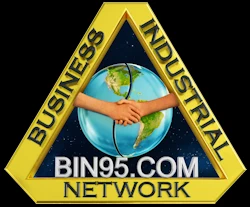Management of science and maintenance: Intro
PREFACE
For many years I have been directly involved with maintenance and engineering in various fields, disciplines and industries. Many other positions have also required a knowledge of maintenance principals. In accomplishing maintenance, both in the business sector and in my own personal life, mistakes have been made. My management training teaches me that mistakes are to be considered ERRORS OF JUDGMENTS. Where-as the knowledge of mistakes might not tell us what to do next, it most assuredly will tell us what not to do later. Incidentally, mistakes are judgment actions based on what we don't know.
During my history, I have attempted to find or establish various PRINCIPALS OF MAINTENANCE which would be applicable to all of our professional needs, to all of our personal needs and still utilize all scientific facts. To date, none has been found.
TO MAXIMIZE THE FIRST YIELD SERVICE(s) OF OUR FACILITIES AND EQUIPMENT.
Where-as "To Reduce Down Time" may be a Management Objective it is certainly not to be classified as a maintenance objective.
In the private sector, our maintenance work forces are comprised of many talented individuals, possessing a great deal of knowledge in many different technologies, fields and disciplines. In addition to this knowledge, they have gained a great deal of experience in the care and repair of our facilities and equipment. In most cases, the talents necessary to repair and maintain are on site or can be obtained quickly from the expertise of outsources. This falls short of our objective of maximizing the first yield services of our facilities and equipment.
However, the repair of broken or malfunctioning facilities or equipment does not describe all the chores or functions assigned to or accomplished by maintenance individuals, maintenance teams or maintenance departments. Nor does it define any needed chores or functions which might aid in the improvement of the first yield output services of our facilities and equipment. Actual repair appears to be only one of many necessary maintenance steps.
This parallels our medical professions. By use of knowledge, technology and management principals we have increased our QUALITY OF LIFE and SPANS OF LIFE.
This has not been accomplished by treating human illness or trauma. Its accomplishment is the result of training patients in the sciences of food consumption (energy intake), exercise (testing), recognition of symptoms (problem solving), first aid (immediate re-active treatments) and therapy (continuous intermediate service). The qualifications for becoming a Doctor of Medicine is not just a study of anatomy, surgery or the effect of drugs on illnesses or diseases. A great deal of time is spent on the HOWS, WHYS, HOW NOTS, WHY NOTS and WHERE TOS.
Let us apply the same approaches to our engineers and technicians who are asked to maintain our facilities and equipment.
In the 60's, 70's and 80's, medical costs went out of sight although the services did yield tremendous results. It reached a crisis point of not being affordable due to our re-acting only to trauma and continuous use of emergency services. By applying Management Principals and defining Objectives and Goals, our medical services have yielded a higher then expected QUALITY and QUANTITY of LIFE.
The purpose of these writings is not intended to be critical of people or any existing systems or processes. They are intended to provoke the thought process of those involved in the CARE and REPAIR of our FACILITIES and EQUIPMENT.
Back To white paper: Change Management Help For Maintenance Managers
